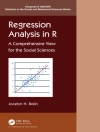Corrections looks at the correctional system and offers arguments for and against the practice of the laws and policies that comprise corrections, from parole and probation to imprisonment, to the application of the death penalty. The 20 included chapters, written by eminent scholars and experts in the fields of criminology, police science, law, sociology, psychology, and other disciplines, take on such contested topics as what the goals of the correctional system should be (deterrence, rehabilitation, retribution, or something else?) and how they should be achieved; who should make these decisions; and how to balance the goals of the correctional system with the civil rights of the inmates. Prison conditions and the treatment of prisoners, as well as the changing definition of cruel and unusual punishment, are also examined.
The Series
The five brief, issues-based books in SAGE Reference′s Key Issues in Crime & Punishment Series offer examinations of controversial programs, practices, problems or issues from varied perspectives. Volumes correspond to the five central subfields in the Criminal Justice curriculum: Crime & Criminal Behavior, Policing, The Courts, Corrections, and Juvenile Justice.
Each volume consists of approximately 20 chapters offering succinct pro/con examinations, and Recommended Readings conclude each chapter, highlighting different approaches to or perspectives on the issue at hand. As a set, these volumes provide perfect reference support for students writing position papers in undergraduate courses spanning the Criminal Justice curriculum. Each title is approximately 350 pages in length.
Mengenai Pengarang
William J. Chambliss, professor of sociology at The George Washington University, was a critical sociological theorist whose research has ranged broadly from studies of law creation and the legal system to participant observation studies of juvenile gangs, organized crime, policing, and the impact of social movements on political and economic change. He served as president of the American Society of Criminology and the Society for the Study of Social Problems. He has received numerous awards for his research and teaching, including the prestigious Edwin H. Sutherland Award from the American Society of Criminology, the Lifetime Achievement Award from the American Sociological Association, the Bruce Smith Lifetime Achievement Award from the Academy of Criminal Justice Sciences, the PASS Award from the National Council on Crime and Delinquency, and the Lifetime Achievement Award from the Sociology of Law Section of the American Sociological Association. He has authored and edited over 35 books in sociology, criminology and criminal justice and numerous articles in social science journals.












